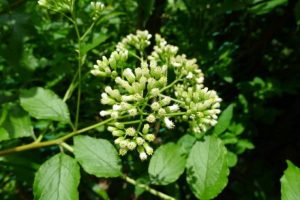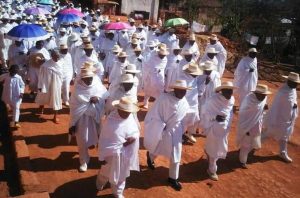The cultures and very survival of indigenous peoples in Africa are seriously threatened. They are ignored, neglected and fall victims of land grabbing and land dispossession, which is caused by extractive industries, agribusiness and other forms of business operations.
Here are some of the key findings of a major report “The Indigenous World 2017”, by the International Working Group for Indigenous Affairs (IWGI) on the state of indigenous peoples worldwide, issued on the occasion of the tenth anniversary of the United Nations Declaration on the Rights of Indigenous Peoples.
Africa is home to an estimated 50 million indigenous peoples, that’s around 13 per cent of the total of 270 million indigenous peoples worldwide. They live in all regions of Africa, with large concentrations in North Africa where the Amazigh people live. In West Africa, there are large pastoralist populations in countries like Niger, Mali, Burkina Faso, Cameroon etc.
There are also large concentrations of indigenous peoples in East Africa with big pastoralist populations in countries like Ethiopia, Kenya, Uganda and Tanzania. Hunter-gatherers are found in many countries in central and Southern Africa, though they are smaller in numbers than the pastoralist groups.
In several African states, explains the report, “indigenous peoples are yet to be recognised as such”. Arguments of all Africans being indigenous or that the concept “indigenous peoples” is divisive and unconstitutional are persistently expressed in political statements and continue to shape policies of a number of African countries.
Large-scale dispossessions of indigenous peoples’ lands remain a significant challenge in several African states, says the report, adding that the global drive for raw materials, agro-business and building major infrastructure projects are pushing indigenous peoples to their last boundaries.
A recent African Commission’s report on extractive industries and indigenous peoples reveals the negative impact several mining, agro business and logging projects are having on indigenous peoples’ land rights and access to natural resources, according to IWGIA report .
In several cases, tensions with indigenous peoples have led to open conflicts, including loss of lives. In this regard, the African Commission has sent urgent appeals to a number of African governments on serious human rights violations affecting indigenous peoples.
Marianne Wiben Jensen, IWGIA’ senior advisor on Africa and Land Rights, said that Africa’s indigenous peoples are victims of land grabbing and other forms of land dispossession caused by extractive industries, agribusiness and other business operations.
“This leads to forced evictions and other forms of serious human rights violations” she said, adding that indigenous peoples in Africa are “marginalised economically and politically and are only to a very limited extent participating in decision-making processes”.
The issue of extractive industries is once again a recurrent and overarching theme in the Indigenous world. Numerous examples show that both states and industries are repeatedly ignoring the key principle of Free, Prior and Informed Consent.
Mega infrastructure projects, investments in extractive industries and large-scale agriculture are increasingly posing a threat to the everyday life of indigenous peoples and their ability to maintain their land, livelihood and culture.
At the same time, Wiben Jensen added, indigenous peoples in Africa have proven to be very resilient, and despite the many problems they face and the lack of support they receive from their governments, they are still there and manage to survive in often very harsh environments based on their unique indigenous knowledge of the nature and the natural resources.
The Indigenous World 2017 is IWGIA’s 30th report on the status of indigenous peoples and comes in a special edition on the occasion of the 10th anniversary of the UN Declaration on the Rights of Indigenous Peoples. Over 70 experts, indigenous activists and scholars have contributed to the Indigenous World 2017.






